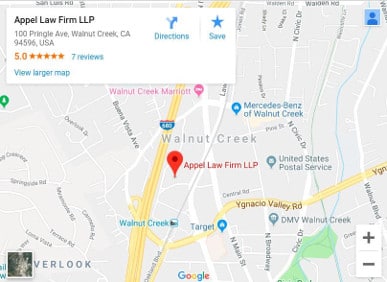
When, Where and How to File a Claim
There are a variety of reasons to file a claim against a public entity in California, including physical harm, violation of protected rights, property damage and death. Claims against local or county entities can be field with the entity’s governing board. Claims against the state or state employees can be filed with the State Board of Control (SBC). The claim must contain:
- Claimant’s name and address
- Post office address for notices
- Date, place and circumstance surrounding how the incident occurred
- Description or injury, loss or damage
- Names of governmental employees causing the incident
- Claimed dollar amount if less than $10,000 and indication of limited civil case
After the claim is filed, the board must allow or deny the claim within 45 days. If the board rejects the claim in part or whole, you have six months from notification to file a lawsuit against the governmental agency.
Establishing Liability Under CTCA
The CTCA has statutory bases for pursuing claims against public entities. The most common basis is found in §815.2. To establish liability, it must be shown that the individual causing the injury or damage is a public employee, the employee’s action is within the scope of employment and the employee’s act or omission gives rise to a cause of action. Even when the elements of liability are established, the public entity can implement the doctrine of comparative negligence in its defense. It’s important to point out that immunities provided to public entities are broader than to those afforded to employees. In lawsuit of mandatory duty liability, public entities may utilize any defense that would be available to a private entity but not any of the public employee immunities.
Public entities may also be liable for hazardous conditions of public property. Liability exists when the dangerous condition was present at the time of the injury, the condition presented a foreseeable risk, the entity had actual notice of the condition or the condition was caused by the omission of a public employee. At the same time, the public entity can still implement any of several immunities, including weather immunity or design immunity to avoid liability. If a statute is outside of the CTCA, it must specifically apply to public entities.
Litigating Against a Public Entity
When litigating against a public entity, it’s important to ensure that the entity or employee is covered by CTCA, the cause of action is covered, there’s a statutory basis for liability, applicable immunities and the proper presentation of an administrative claim. There are legal and practical issues that must be addressed in public entity lawsuits, such as avoiding the pitfalls of discovery privileges that apply to public entities, dealing with Joint Powers Insurance authorities and knowing the defense and indemnification protocols.
If you’ve fallen on a poorly maintained public property or have a car accident due to a poorly maintained roadway, there may be a governmental entity that bears responsibility. Keep in mind that a personal injury claim against a governmental entity, the procedural rules and likelihood are getting compensation are quite different than from private entities. There are rigid rules to follow and strict statutes of limitations to adhere to in order to initiate a lawsuit. And if you don’t follow the notice of claim guidelines, the court will dismiss your lawsuit. By consulting and hiring an experienced personal injury attorney, you can avoid the common pitfalls associated with filing a lawsuit against a public agency.
Photo Credit: PeterThoeny cc

Speak Your Mind